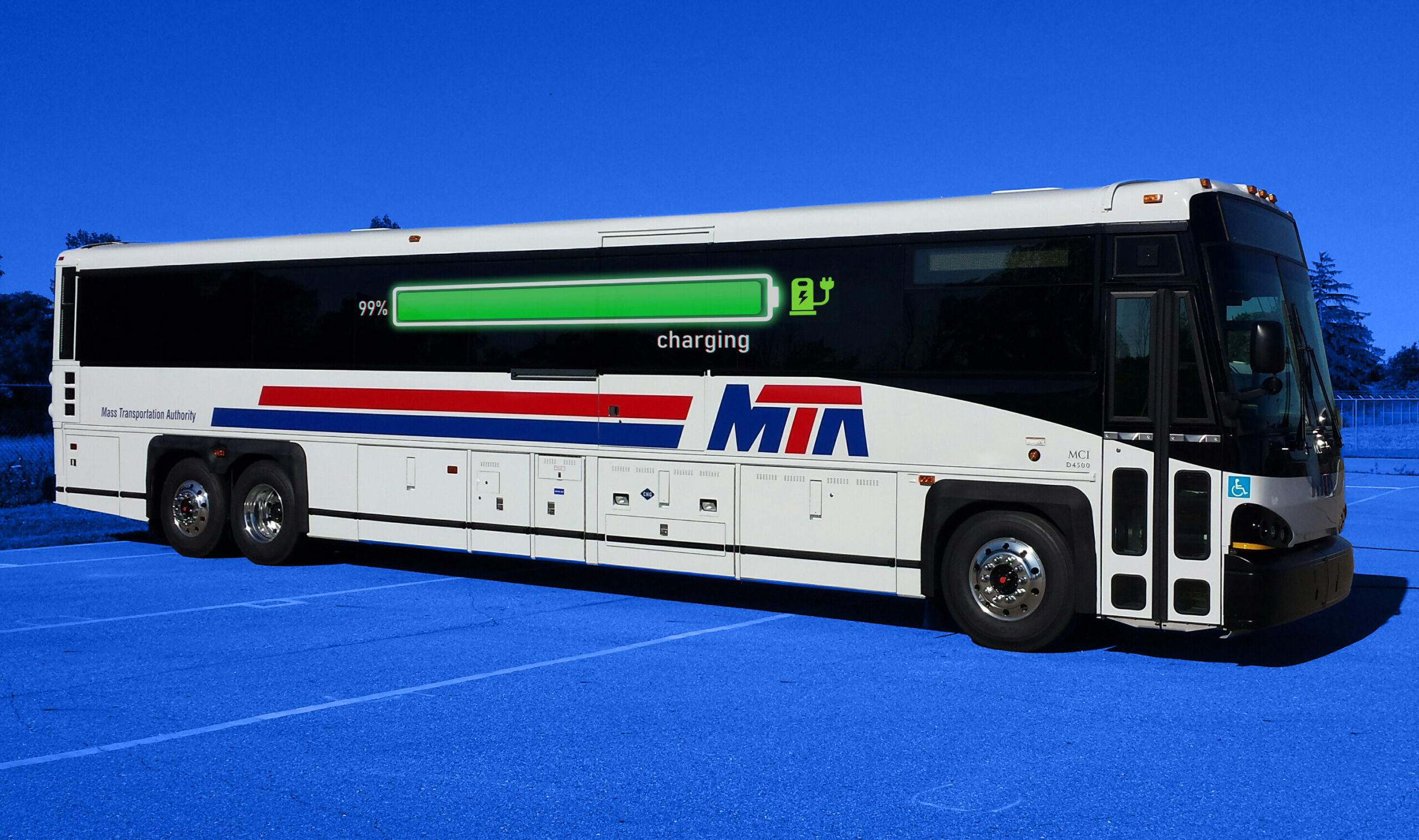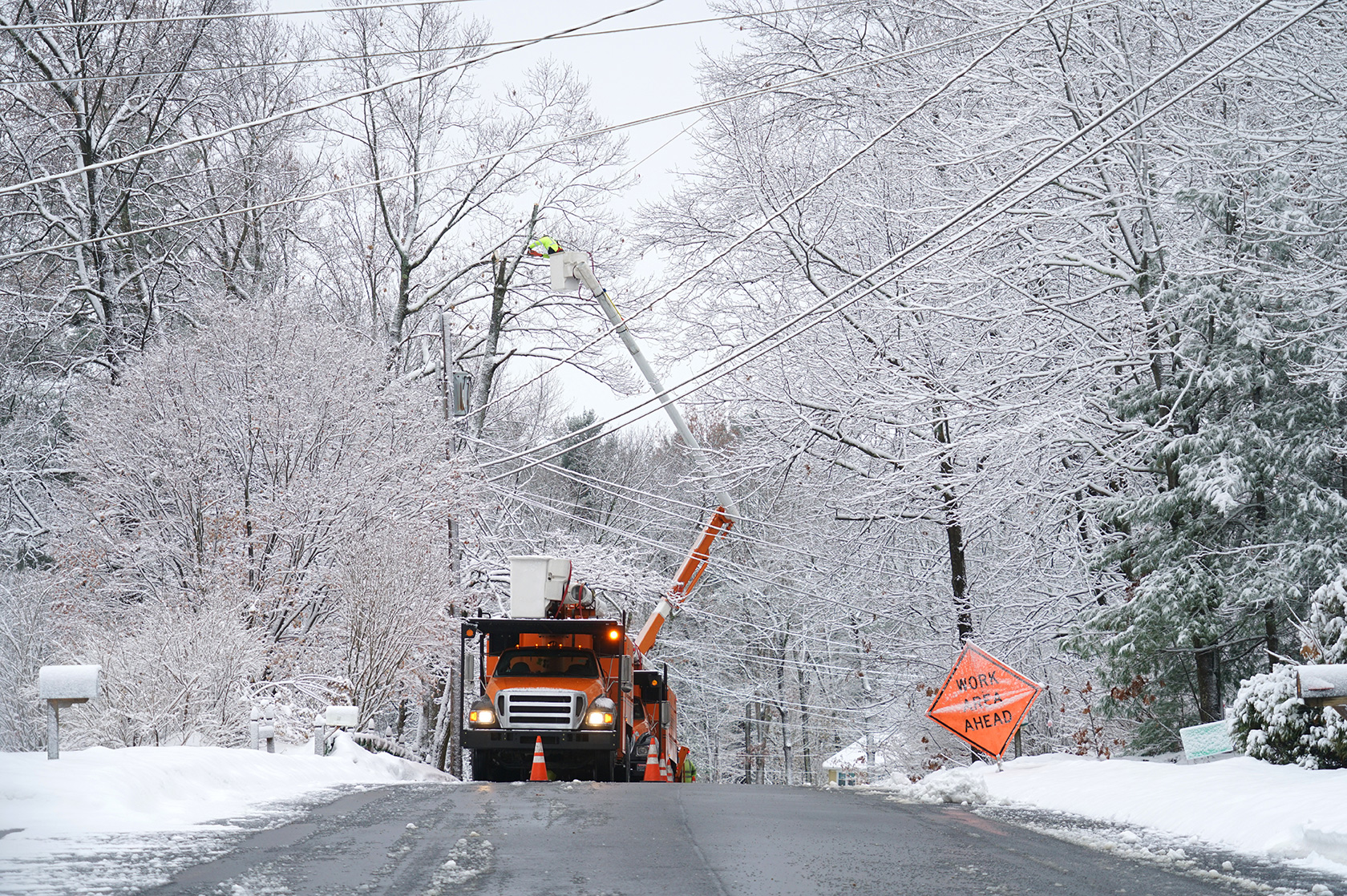The Flint Mass Transportation Authority (MTA) just unveiled two new hydrogen fuel cell buses and six electric vehicles (EVs) at the MTA’s Grand Blanc fueling station. The new buses are replacing the last two diesel buses in the city’s bus fleet.
The vehicles were purchased with a $4.3 million grant awarded through the Biden-Harris infrastructure law. The funds also helped pay for new charging stations and other upgrades to the Grand Blanc fueling station.
Additional funding to expand the fueling station has been secured through a partnership between the state of Michigan and the Midwest Alliance for Clean Hydrogen (“MachH2”). MachH2 is also planning to build a “hydrogen production facility” in Ypsilanti.
Fuel cell buses are powered by hydrogen and are considered “zero-emission,” as the conversion of hydrogen to electricity releases no pollutants. They rely on an electric motor rather than an internal combustion engine for power. But instead of plugging into a power source to recharge, the buses produce their own electricity onboard. After converting hydrogen to electricity, only water and heat are emitted as byproducts.
According to the Flint MTA, its hydrogen and alternative fuel buses have cut the agency’s fuel consumption by 99% and cut the air pollution.
Hydrogen is considered an important and versatile “future energy vector” that offers opportunities across a variety of sectors of the economy. The state of Michigan is working to cultivate a reputation as a “hydrogen economy,” and the city of Flint is considered to be a “national leader” in hydrogen-powered transportation.
According to the office of Governor Gretchen Whitmer, “the State of Michigan is helping to lead the way (to a clean hydrogen economy) with streamlined permitting, technical assistance, and other support.” Investing in the development of a clean hydrogen market, workforce, and supply chain has strong potential to promote energy independence, expand economic opportunities, improve public health, and create as many as 8,400 jobs in Michigan by 2035.
“Unlocking the full potential of hydrogen — a versatile fuel that can be made from almost any energy resource in virtually every part of the country — is crucial to achieving the Biden-Harris Administration’s goal of American industry powered by American clean energy, ensuring less volatility and more affordable energy options,” Energy Secretary Jennifer Granholm said in a statement.
Three Key Facts:
- The Flint Mass Transportation Authority (MTA) unveiled two new hydrogen fuel cell buses and six electric vehicles (EVs) purchased with a $4.3 million grant funded by the Biden-Harris infrastructure law.
- Additional funds to expand the hydrogen fueling station have been secured, and plans to build a hydrogen production facility in Ypsilanti are underway.
- Investing in a hydrogen market, workforce, and supply chain will promote energy independence, expand Michigan’s economic opportunities, and create 8,400 new jobs.





